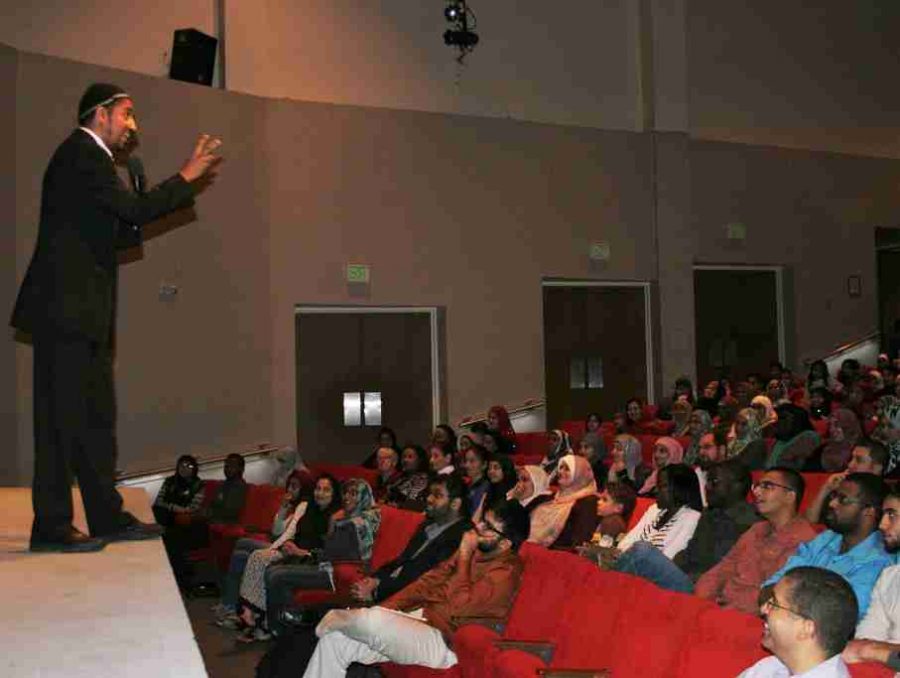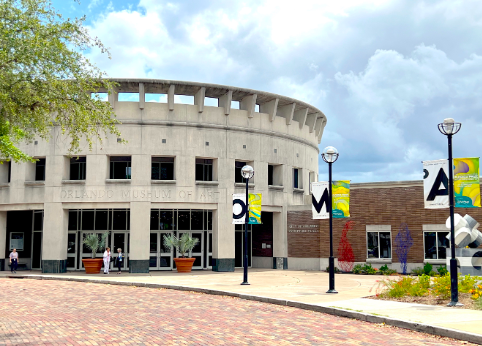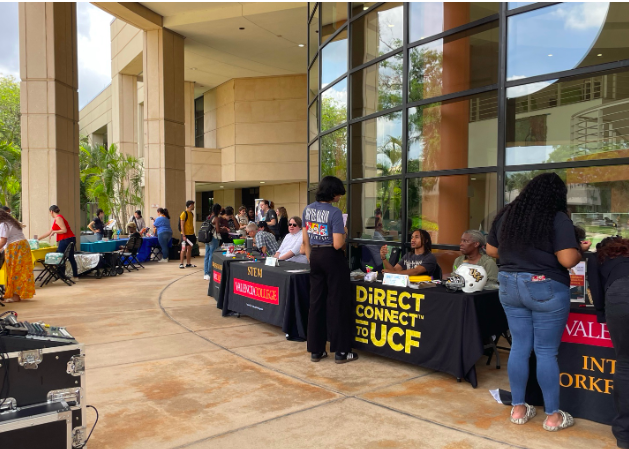The Muslim Student Association at Valencia’s East Campus hosted its first conference, highlighted by Wisam Sharieff, a prominent Muslim American with an unorthodox speaking style and an ambitious plan for international peace.
“We don’t need more words; we need more love,” said Sharieff, “but love doesn’t have its own language, yet.” He addressed the gathering of more than 500 Muslim Americans from the local community, and MSA groups from UCF, USF, Rollins, and more. They came out to this conference to address complicated religious issues and the proper role of modern technology.
Sharieff has an idea that expands the United Nations International Day of Peace to a long break in the near future of up to four months of international peace. The concept was equated to parents that have children who are fighting will separate them to let their tempers cool down. He is planning to meet and speak with Arabic leaders in Pakistan, Saudi Arabia, London, and elsewhere to expand on this concept of unified peace.
Though it can be dismissed as an over-zealous or unattainable goal, you can not deny that it’s ambitious, especially for a young anthropologist relatively new to public speaking. For ten years Sharieff was in and out of hospitals battling illnesses, and spent his time studying the lessons of the Bible, Torah, and Koran. It was during this period he developed his plan for peace and an international language (like American Sign Language) to unify the world through basic human understanding.
Other topics addressed at Saturday’s conference were staying away from being judgmental, stereotypical, and negative, and how to deal with a situation involving these behaviors. Included in the agenda was a long discussion on “The Beauty of Hijab” with its dress and personal requirement’s purpose and function.
Another topic of discussion included the relatively new stigma of finding a balance in the over saturation from social media web sites and smart phones. Some participants fear many younger Muslims are acting conservative in public, but behaving differently behind the anonymity of a computer screen.
This is tied directly into the goal of the Muslim Student Association to inform, educate, and enlighten others concerning the Islamic religion.
“Our goals are dispelling misconceptions that people may have about our religion” said Amir Khan, President of MSA on East Campus. “People think we’re all like terrorists, or all Muslims are from the Middle East, it’s obvious that’s not the case.” Khan’s family is originally from South America and has no family ties to anyone overseas.
There is a general frustration with misconceptions that Muslims face in a post 9/11 world. “It’s the only religion this day that has to defend itself,” Khan said. “If you say that person is Christian or that person is Jewish no one cares, but if you say they are Muslim then you have to defend or justify that.”
Aside from informing students and helping with campus events MSA recently raised $1,000 to help with the people of Somalia. “We have Project Downtown where every two weeks we go to downtown Orlando and cook food, make sandwiches, and feed the homeless,” said MSA member Manan Isis.
The main goal of MSA is spreading a positive message and helping the college meet its goal of embracing diversity.
“We have students from around the world, and different cultures within MSA,” said Valencia professor MSA advisor Yasmeen Qadri. “It’s so important that we are all on the same page, and working towards the same goals.”







